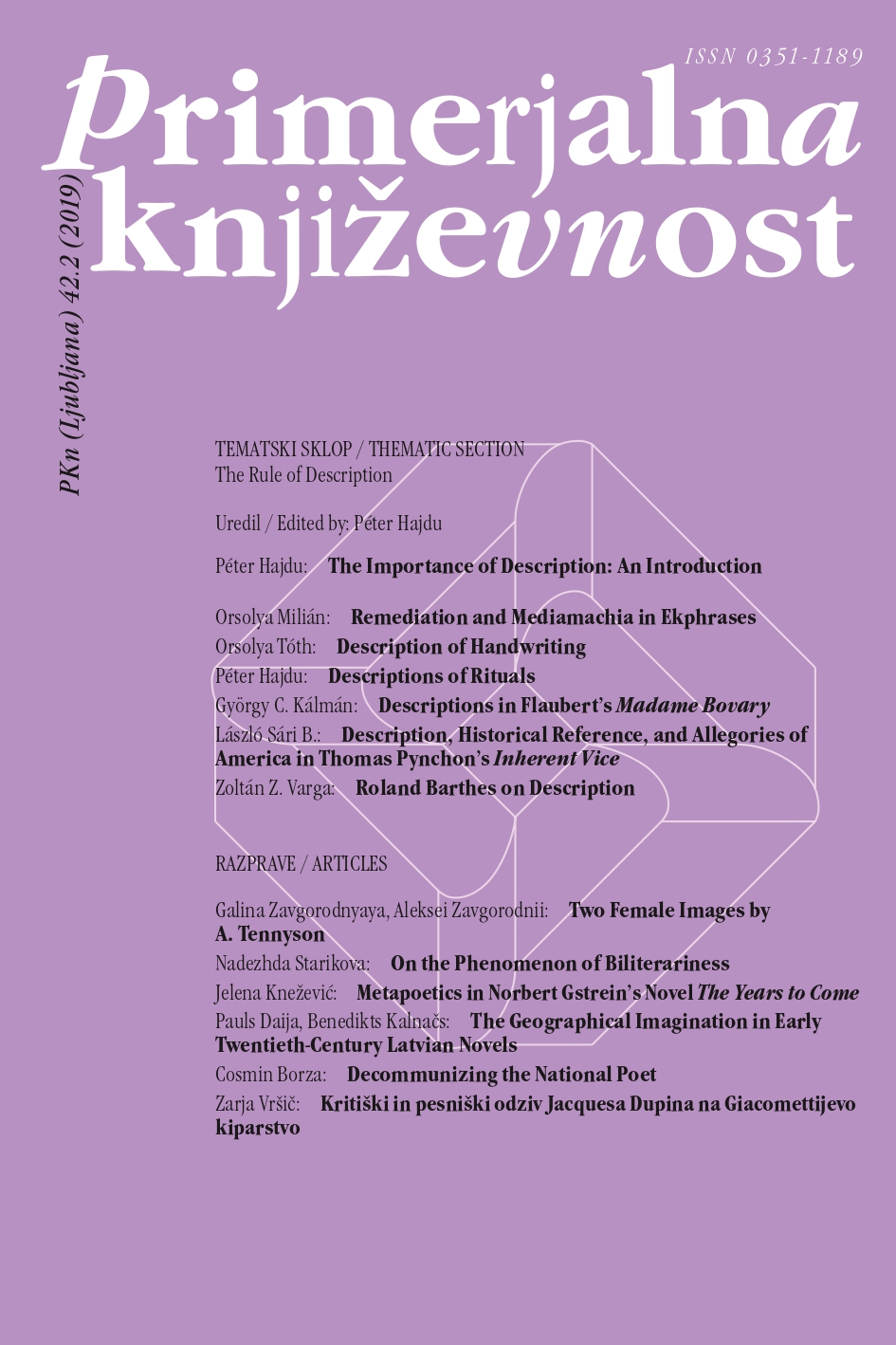On the Phenomenon of Biliterariness (Based on the Experience of Studies of South Slavic Literatures)
Keywords:
South Slavic literatures, national identity, multiculturalism, bilingualism, biliterarinessAbstract
Russian Slavic scholars have focused on issues of studying and interpreting South Slavic Literatures for a long time. A recent landmark in the field, the Lexicon of South Slavic Literatures presents not only prominent Yugoslav writers but unveils their literary interconnections. Among other things, a feature of South Slavic literary context is a phenomenon of biliterariness of a number of writers, i.e. their affiliation with literary life of several national literatures. This phenomenon has deep historical, literary, ethnic, lingual, and religious roots. In certain periods, mostly under the influence of extraliterary conditions, it triggers heated debates. For example, the Soviet Union collapse provoked polemics over the attitude of Russian writing authors (Aitmatov, Bykov) representing national literatures towards Russian literature. While identifying the specificity of works authored by writers whose literary activity can be affiliated with two literatures, it should be taken into account that their biliterariness may be diachronic, i.e. pertaining to different periods, or synchronic, i.e. manifesting itself throughout the development of two literatures simultaneously. Scholars studying multinational contexts of any kind are facing a challenge of developing key criteria to identify national dominant.References
Ďurišin, Dionýz. Teoriya sravnitelnogo izucheniya literatur. Moscow: Progress, 1979.
Leksikon yuzhnoslavyanskikh literatur. Edited by Galina Y. Ilyina. Moscow: Indrik, 2012.
Nikolayev, Pyetr A. “Predisloviye.” Russkiye pisateli XX veka. Biobibliograficheskiy slovar’ v 2 chastyakh. Edited by Pyetr A. Nikolayev. Moscow: Bolshaya Rossiyskaya enciklopediya, 2000. 3–12.
Tolstoy, Nikita I. “Kulturno-istoricheskiye predposylki obrazovaniya natsionalnykh literaturnykh yazykov (na materiale serbokhorvatskogo, bolgarskogo i slovenskogo yazykov).” Formirovaniye natsiy v Tsentralnoy i Yugo-Vostochnoy Evrope. Moscow: Izdatelstvo Nauka, 1981. 122–134.
Bogišić, Vlaho, Lada Čale Feldman, Dean Duda and Ivica Matičević. Leksikon hrvatske književnosti. Zagreb: Naprijed, 1998.
Prosperov Novak, Slobodan. Povijest hrvatske književnosti. Zagreb: Golden marketing, 2003.


